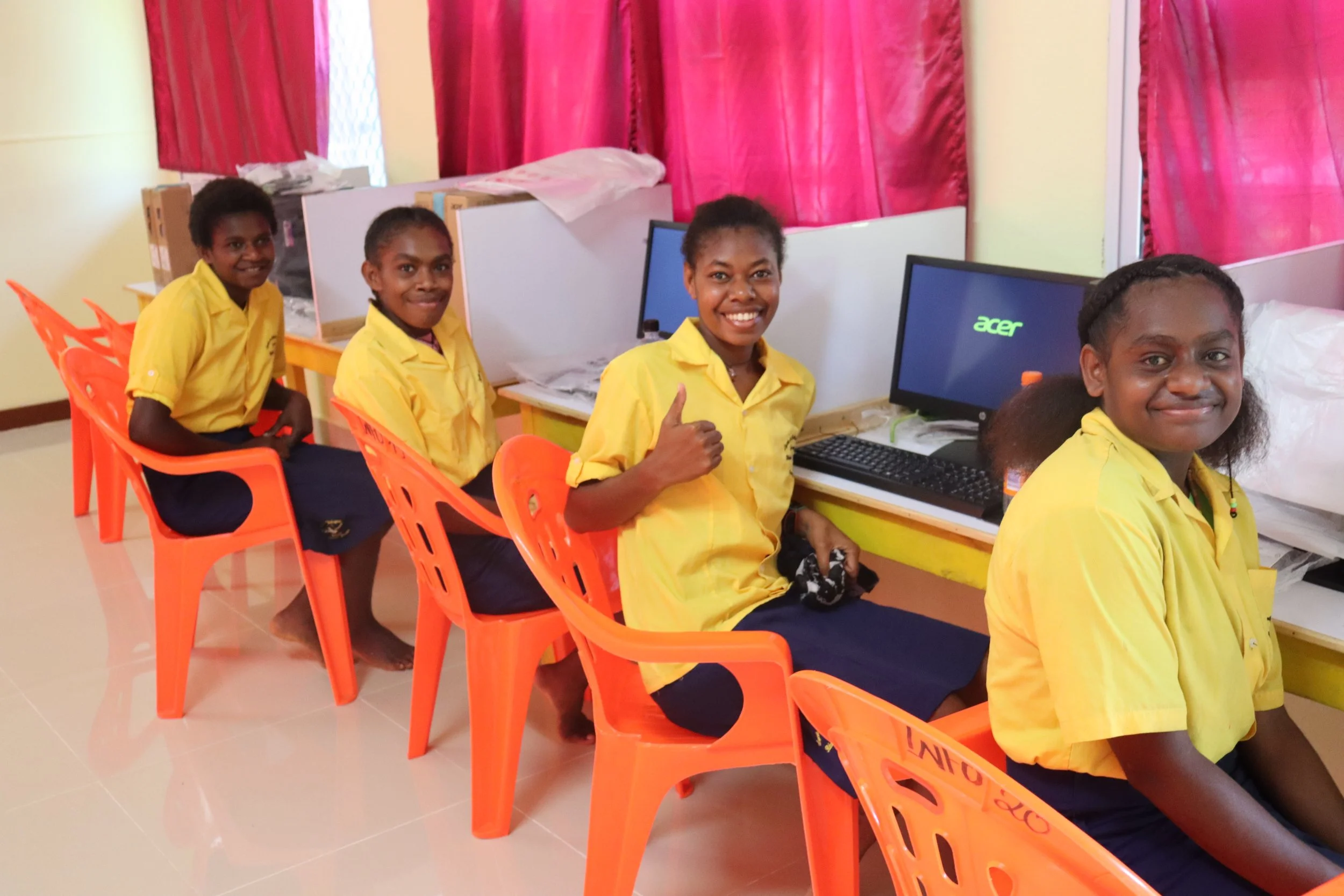VANUATU
Key Info
Population: 326,000
Capital: Port Vila
Main languages: Bislama, English, French
Main religions: Presbyterian 32%, Anglican 13%, Roman Catholic 13%, Seventh-day Adventist 12%
Country Information
Geography
Vanuatu is an archipelago of 83 islands, with two—Matthew and Hunter—also claimed by New Caledonia. Among these, 14 islands are larger than 100 square kilometers, with the biggest being Espiritu Santo (3956 km²), followed by Malakula (2041 km²) and Éfaté (900 km²). Most of the islands are volcanic and mountainous, enjoying a tropical or subtropical climate. The capital, Port Vila, is located on Éfaté, and Luganville is on Espiritu Santo. The highest point in Vanuatu is Mount Tabwemasana at 1,879 meters. Vanuatu also has several active volcanoes, including Yasur on Tanna, one of the world’s most accessible volcanoes.
History
Vanuatu has a rich history of human habitation, with evidence of settlement dating back over 3,000 years. The first European to reach the islands was Portuguese explorer Pedro Fernández de Quirós in 1605. British explorer James Cook later visited in the 18th century, naming the islands the New Hebrides. In 1887, the islands were placed under a joint French-British administration, known as the Anglo-French Condominium, which lasted until Vanuatu gained independence in 1980. Following years of self-governance movements, Vanuatu became a sovereign nation on July 30, 1980, joining the United Nations in 1981. Today, it remains a peaceful and independent country, with a unique cultural heritage shaped by both its indigenous roots and colonial history.
Culture
Vanuatu has a vibrant and diverse culture, deeply rooted in its indigenous traditions. The ni-Vanuatu people maintain strong connections to their land, customs, and languages, with over 100 distinct languages spoken across the islands. Traditional practices, such as dancing, music, and ceremonies, play an important role in community life. The country is also known for its unique art forms, including carving, weaving, and pottery. Christianity, introduced during the colonial period, is widely practiced, but traditional beliefs and spiritual practices remain significant. Vanuatu's culture is a blend of ancient heritage and modern influences, creating a rich and dynamic society.
Case Study: St. Michel Technical College
St Michel’s provides critical skills development for Vanuatu with both mainstream and vocational education pathways and has been supported by the Marist Brothers for 26 years. The school has over 300 students enrolled at any given time, ranging from grades 7 to 12 and a further 80 enrolled in the vocational stream of the school. It has been seen as a beacon of hope on Santo as it was one of the first schools established on the island.
The Marist Brothers have been working in Vanuatu since 1991 and Australian Marist Solidarity has played a vital role in recovery and rebuilding in this region, including after Cyclone Pam which hit Vanuatu in March 2015.
In April 2020, Tropical Cyclone Harold caused extensive damage to St. Michel Technical College on Espiritu Santo. The roof was torn off in many areas, leading to widespread water damage. The college, which serves 354 students in grades 7–12 and 80 vocational students, was struggling with class schedules, holding lessons in temporary spaces like tents and under trees.
The damage affected multiple areas of the school, with the technical workshop and classroom, Year 9 classrooms, staffroom, and boys' toilets identified as the most urgent needs. Additionally, 15 computers and a printer were damaged, disrupting computer lessons.
The repair work was completed in two phases: phase one addressed the technical workshop, classroom, and boys’ toilet block, while phase two focused on the Year 9 classrooms, staffroom, and new computers.













